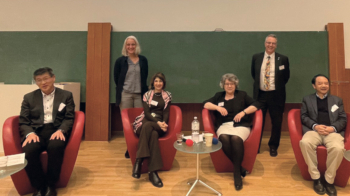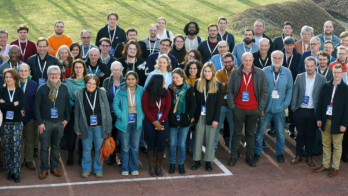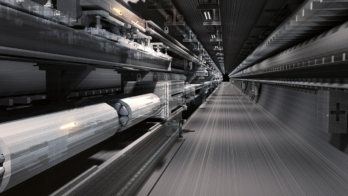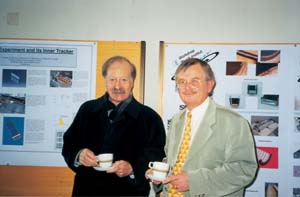
An update on particle physics and closely related topics in Switzerland was presented at the University of Zurich in March to a subpanel of the European Committee for Future Accelerators, RECFA. Members were welcomed to the meeting by the university’s rector, Hans Weder. In his opening address, Professor Weder emphasized his belief in the importance of basic research. He said that the University of Zurich intends to be among the very best in basic research. As a theologist, he found particle physics “a most fascinating human endeavour”. He concluded: “You may be proud of your contribution to human culture.”
The position of the Swiss Government was described by Charles Kleiber, Secretary of State for education and science, who declared that “Switzerland believes in CERN” (see below). An overview of particle physics in Switzerland was given by Claude Amsler, followed by several talks on the various Swiss activities in particle physics, in Europe and elsewhere, as well as a few contributions to spin-offs, such as medical applications involving particle physics techniques.
RECFA delegates were impressed by the extent and quality of the activities. Switzerland, in spite of being a small country, is almost omnipresent at CERN. Swiss scientists are active in a large number of experiments all the way from the lowest energies – experiments with antihydrogen – to the highest-energy experiments preparing for the Large Hadron Collider (LHC). There is also a very strong community of theoretical particle physicists in Switzerland.
An interesting recent development in Switzerland concerns a proposal by the Forum of Swiss High Energy Physicists to construct a dedicated Swiss facility to meet the challenges of the LHC computing. This is to be situated at the Swiss Center for Scientific Computing in the Italian-speaking Canton of Ticino. Switzerland also benefits from a large multidisciplinary national laboratory, the Paul Scherrer Institute (PSI). In addition to being a research laboratory, the PSI enables Swiss physicists to engage in activities beyond those that are possible at universities, such as building large equipment and having access to test-beams.
Are there then no clouds on the horizon for Swiss particle physics? The funding system is complicated, and post-doctoral fellows are expensive and not easy to find. However, Swiss particle physicists seem to have found their way through the funding labyrinths, and RECFA was pleased to find the Swiss particle physics community so strong and dynamic.
Switzerland believes in CERN
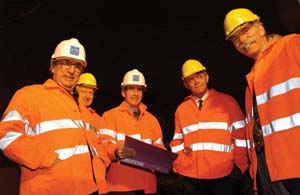
In telling RECFA delegates that Switzerland believes in CERN, the Swiss secretary of state for education and science, Charles Kleiber, said: “CERN is the world’s focal point for high-energy physics and therefore an invaluable asset for research in this field. Moreover, member states have invested heavily in CERN and it would simply be a waste of money not to continue to use it to the maximum extent possible. CERN motivates young students to study physics and serves as a first-class learning site by offering excellent training possibilities for the next generation of physicists. CERN is also ‘la part de rêve’ which is so necessary today. CERN disposes of motivated and competent personnel with an excellent record of success, but working also with great passion – and sometimes under very difficult conditions – on the future of CERN. Let’s protect and take advantage of the human resources available.”
Charles Kleiber is the new head of Switzerland’s delegation to CERN Council.



